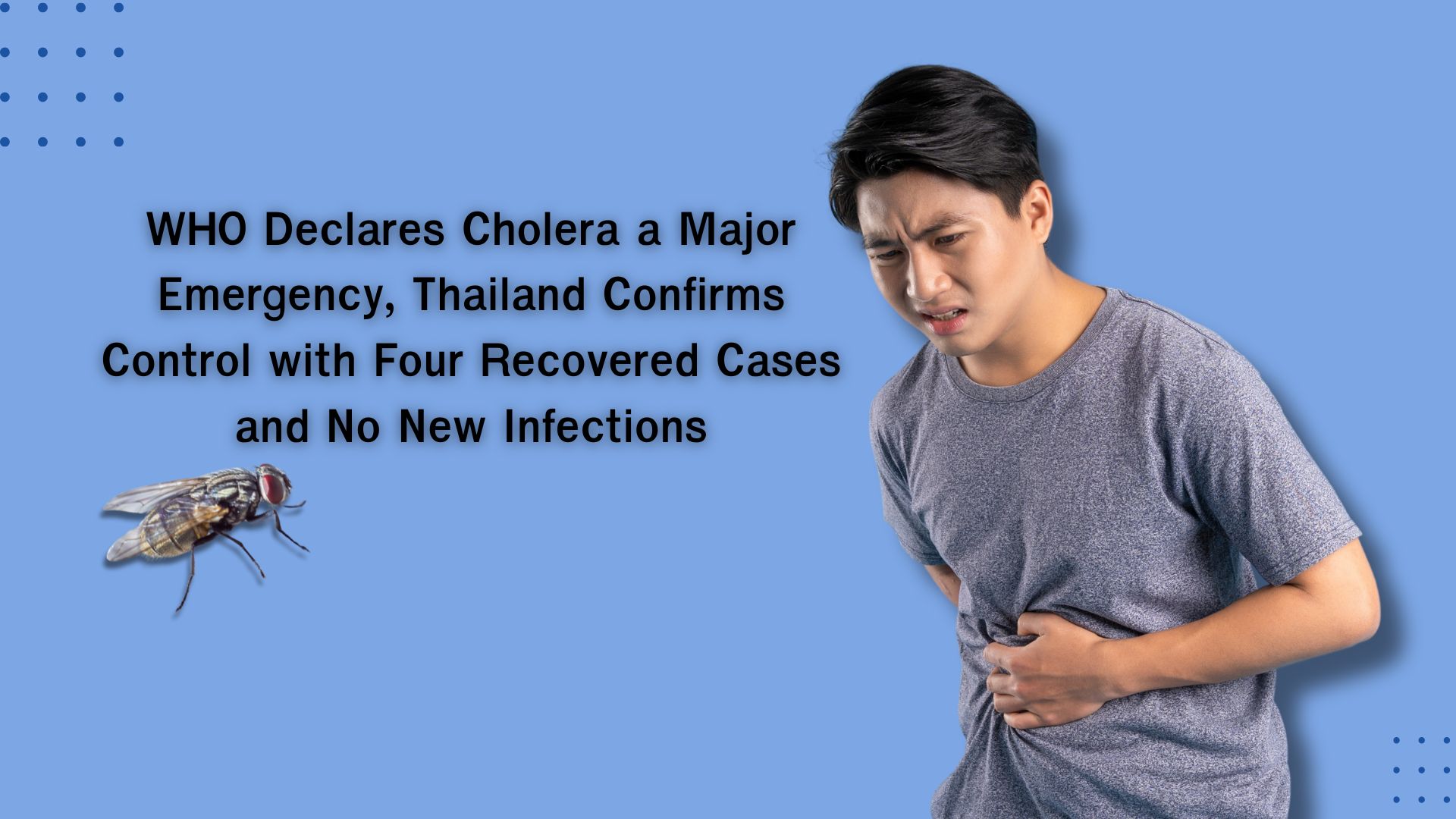
WHO Declares Cholera a Major Emergency, Thailand Confirms Control with Four Recovered Cases and No New Infections
Thailand’s Ministry of Public Health has assured the public of its effective control over cholera, following the World Health Organization’s (WHO) declaration of cholera as a "major emergency" due to increasing cases in several countries. While the WHO’s announcement aims to raise global awareness and encourage preventive measures, it has not yet escalated to a Public Health Emergency of International Concern (PHEIC), as was the case during the COVID-19 pandemic.
Thailand’s Ministry of Public Health has assured the public of its effective control over cholera, following the World Health Organization’s (WHO) declaration of cholera as a "major emergency" due to increasing cases in several countries. While the WHO’s announcement aims to raise global awareness and encourage preventive measures, it has not yet escalated to a Public Health Emergency of International Concern (PHEIC), as was the case during the COVID-19 pandemic.
Dr. Supachok Wechapanphacha, Inspector General of Health Region 2, stated that Thailand has long maintained vigilant surveillance of cholera, one of 57 legally monitored communicable diseases. Following an outbreak in Shwe Kokko, Myanmar, near Thailand’s Tak Province border, the Ministry instructed Tak’s provincial health office to set up an operations center for disease monitoring and control. Since December 21, 2024, Thailand has recorded a total of four confirmed cases—two foreigners and two Thais—and three asymptomatic carriers. All individuals have fully recovered, with no fatalities reported.
Preventive Measures During the New Year Festival
Dr. Supachok emphasized the importance of continued vigilance, particularly during the New Year festivities, where communal dining could increase transmission risks. The primary risk factors involve hygiene and sanitation related to food and water. Public awareness campaigns are being intensified, emphasizing the importance of eating freshly cooked food, using personal utensils, and frequent handwashing. Food and beverage vendors, as well as market operators, are under strict sanitary guidelines.
Key Preventive Measures Enforced by the Provincial Disease Control Committee
1.Market Sanitation:
- All markets and restrooms must be cleaned daily, with mandatory disinfection.
- Food and beverage vendors, including street food operators, must adhere to food safety and sanitation standards.
2.Public Restrooms:
- Public restrooms in government buildings, schools, religious sites, and private establishments must be cleaned and disinfected daily.
3.Water Supply Quality:
- Water providers must improve water quality, ensuring a minimum residual chlorine level of 1.0 ppm at the main supply point and 0.5 ppm at distribution points.
4.Screening and Treatment:
- Individuals suspected of having cholera are required to undergo screening and treatment until they are no longer contagious.
5.Cooperation for Disinfection:
- Owners and operators of premises, such as restaurants, beverage stalls, and water production facilities with suspected contamination, must cooperate with public health officials for disease screening and disinfection.
6.Public Communication:
- Local leaders, including district officers, village chiefs, and community representatives, are requested to disseminate preventive information widely through all available communication channels.
The Ministry continues to collaborate with local authorities and community networks to ensure public health safety while preventing the further spread of cholera.
Source:
Articles in this category are written by our editorial team to keep you informed about the latest healthcare and medical tourism news.

